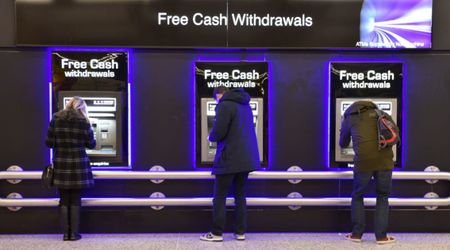Experts Weigh in on Efficacy of Laws Crafted to Ensure Timely Payment for Freelancers

With flexible work timings, and the freedom to choose projects, freelancing is certainly a more attractive prospect for professionals, but it also comes with a fair share of struggles. One of these challenges is wage theft, something that more than half of the freelancers offering their services in the market have experienced, at least once in their career, as per The Real News Network. To tackle this problem, the law, "Freelance Isn’t Free" was first passed in New York City in 2017, with an aim to help freelancers recover money lost in unpaid invoices. This law is now backed by organizers at the National Writers’ Union and the Freelance Solidarity Project, in order to bolster its impact further.

Without a written contract outlining the terms of the work, freelancers are left vulnerable to exploitation and may find it challenging to enforce payment terms. Moreover, even when contracts are in place, freelancers may encounter difficulties in negotiating fair compensation, especially when working with larger organizations or media outlets.
Eric Thurm from the National Writers Union and Keisha "TK" Dutes of the Association of Independents in Radio recently discussed how legislative measures are working to alleviate inherent challenges that come with freelancing.
Thurm started by outlining the fundamental protections provided by this law. He emphasized that every freelancer is entitled to a written contract that delineates the terms of their engagement. "Freelancers should typically receive compensation within 30 days of completing their work," he says.

Keisha recounted her own experience wherein payment was contingent upon the airing of the episodes she had contributed to. "So you get maybe per episode, but maybe you get half when half of the thing is done and then the other half when it’s over, or if you have six episodes, they’ll be like, okay, we’ll pay you a little bit upfront, a little in the middle," she stated.
The lack of collective bargaining power and the decentralized nature of freelance work can make it difficult for individual freelancers to hold clients accountable for non-payment. This is where legislative measures such as the Freelance Isn’t Free law come into play, providing freelancers with legal protections and avenues for recourse in cases of wage theft.
Cities across the United States are increasingly enacting their versions of this law to safeguard the rights of freelancers in their jurisdictions. For instance, in California, clients are now governed by the new AB5 Gig Worker Law, irrespective of their location.
The state laws of New York and Illinois are poised to take effect later this spring, with both currently under review by the Attorney General’s office.

"One of the really important things that the law does is it gives those agencies the ability to bring together groups of people who are dealing with the same type of non-payment," Thurm says, referring to the law.
"We’re talking about conventional organizing law and stuff like that, but I think it starts even earlier when a company is not paying, you don’t keep doing the work. I think I even fell into that trap," Keisha remarks.
Keisha says that she can't wait to see what the Los Angeles Freelance Isn’t Free ordinance has to offer. "I didn’t even realize they were doing it. I was very excited to see that happen. So again, thanks so much for coming on guys, and I hope you enjoy the rest of your day."
























